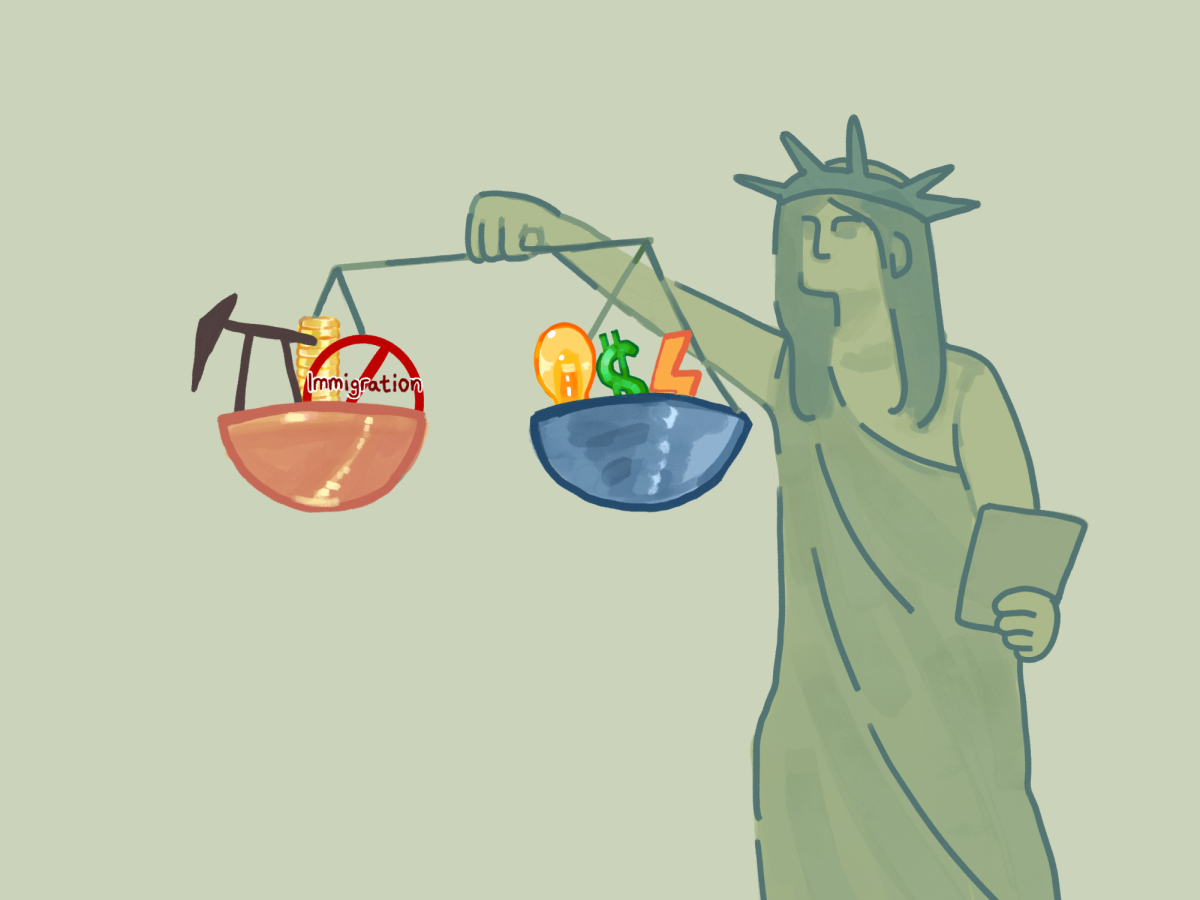Just a month after Donald Trump was re-elected as the 47th president of the United States, James Earl “Jimmy” Carter passed away at the age of 100. Carter, who served as president from 1977 to 1981, promoted environmental protection and education reform. Since his presidency, presidents, such as Joe Biden, have upheld his values, including the preservation of nature. However, as a new presidency begins, it seems the work of Carter is being erased.
Carter was a strong advocate in the fight against climate change. During his presidency, he established the National Energy Act of 1978 during the gas and oil U.S. energy shortage, reducing reliance on foreign oil and encouraging the use of solar energy to power homes. According to Alaska Public Media, in 1980, Carter also worked to preserve native Alaskan lands and signed the Alaska National Interest Lands Conservation Act (ANILCA), which expanded the size of national parks and refuges across the state.
In contrast, Trump has openly supported expanding oil and gas drilling. Just weeks before his inauguration, Biden issued an executive order banning drilling on 625 million acres of coastal and offshore waters, as stated by Fox News. As president, Trump has already signed an executive order with the goal to undo Biden’s policies. During his first term, the Trump administration also opened up the Arctic National Wildlife Refuge for oil drilling, an area protected by the federal government since 1960 that houses the Inupiat and Gwich’in Indigenous communities.
Despite the economic benefits of strengthening America’s energy creation, the environmental impacts are disastrous. Trump is more concerned with money than the current climate crisis. He wants to strengthen the creation of American-made energy, but at what cost? A temporary economic boost at the expense of a decades-long fight to focus on renewable energy production and fight climate change? With the climate clock ticking, why should America backtrack from the progress we’ve made so far?
Carter also had a significant impact on American education. Before his presidency, federal education programs were scattered among different agencies. In 1979, however, Carter established the Department of Education (DOE).
The DOE created access to quality education for minorities and those from low-income families, but despite the advantages of the DOE, Trump follows in the footsteps of previous Republicans: he threatens to abolish it.
As he said in an interview with Time Magazine, “We want to move the schools back to the states…we’re at the bottom of every list in terms of education and we’re at the top of the list in terms of the cost per pupil…we’ll spend half the money on a much better product.”
Mason Dwek, a co-chair of the Election Club ‘24, warns shutting down the DOE would create disparity in the quality of education between states since the guidelines the education department requires for all schools throughout the country would be removed and each state government would establish their own schools standards.
The DOE also enforces civil rights laws and gives funding to protect marginalized people, such as disabled students. The absence of the DOE could cause varied enforcement of these laws and also reduce funding for education workers, such as school psychologists, who need certain resources to help students with disabilities.
As the daughter of a school psychologist in the New York City Department of Education (NYC DOE), for years I’ve heard my mother describe her work assessing students to determine their cognitive, academic and social-emotional functioning and recommending the special education services they need. The funding the NYC DOE receives from the government enables her and her coworkers to purchase important assessment tools, such as standardized tests and protocols, needed to identify learning disabilities. These assessment tools, along with the scoring software part of digital packages that the DOE provides, require periodic updates every few years. Without federal funding, it would become increasingly difficult to obtain the assessment tools necessary to classify and support students with educational disabilities.
As people become aware of how the removal of the DOE directly affects children, it’s important that parents work to prevent children with learning disabilities from a difficult future of struggling to secure high-paying jobs because of poorer academic outcomes by contacting local representatives. Additionally, considering current children will be forced to live in whatever environmentally distressed world the “drill, baby, drill” initiative tries to create, it is imperative that people spread awareness through social media platforms of how environmental degradation impacts current and coming generations. By reviewing and remembering Carter’s legacy of ecological conservation and educational improvement, we can construct a more secure future.






